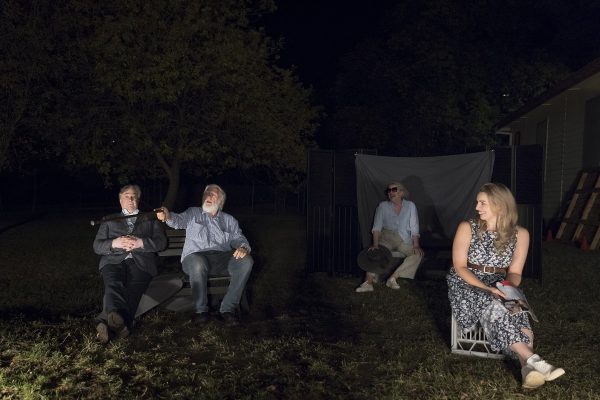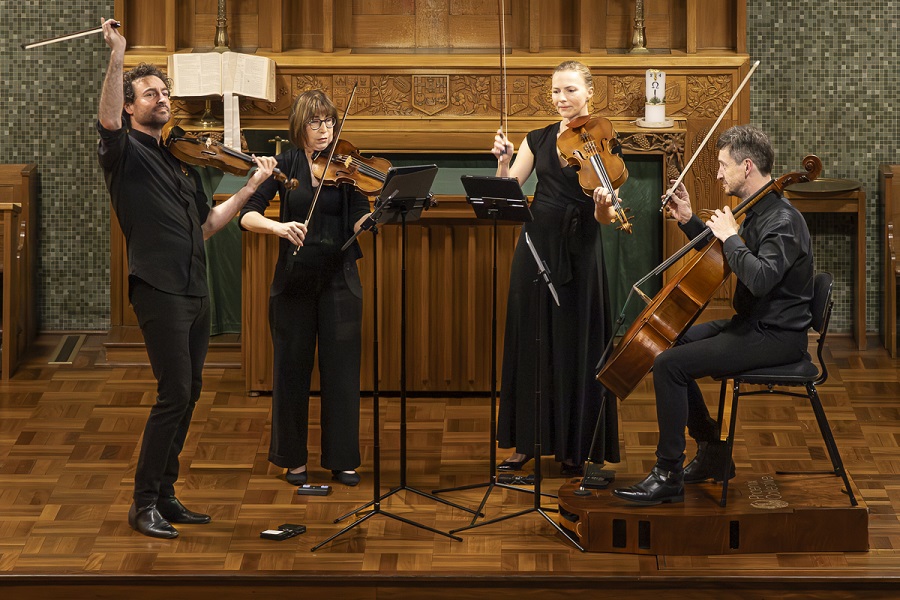
Theatre / Seagull, directed by Caitlin Baker, assistant director Karen Vickery. At The ACT HUB until April 21. Reviewed by JOE WOODWARD
Chaika Theatre’s production of Seagull launches the audience into the world of artistic struggle against the inertia of one’s own limitations and social stagnation.
This is achieved through the use of an actual outdoor setting to which the audience is invited before entering the theatre for more internal scenes developed through the exposition of the seemingly strange machinations of the central characters.
Karen Vickery’s translation of Anton Chekhov’s The Seagull makes for a highly relatable and accessible text heightened by strong and, at times, very powerful performances from the cast.
Space and time are critical. The play offers continual referencing of a moment by the lake when an aspiring writer, Konstantin Treplyov played by Joel Horwood, presents a work in progress with a young actress Nina Zarechnaya played by Natasha Vickery. A seemingly innocent and inconsequential moment draws out massive family tensions that bring to the surface ultimately tragic circumstances.

At the time of its original creation in the late 19th century, Symbolism was emerging as a very significant force in art and playwriting. Seagull utilises the pairing of the killing of a seagull with the life of the young actress. Natasha Vickery’s performance embodies the flight of the bird in its potential majestic possibilities while holding within the character a fragile vulnerability. This contrasts greatly with the conceits of the artists who frequent the property by the lake.
Yet the play is ultimately optimistic. While using a Shakespearian tragedy structure, the resonance of the dead bird actually gives life to aspiration and growing humanity.
There were some beautifully constructed moments in the production; not least of which were in the final ones. The outdoor play within a play and how it was set up provided an easing into the family structures and the special significance of the location. There are great lessons in this for theatre presentation. Most of all, it provided a real connection between performers and audience who were really guests at a special event.
There could be some quibbles about delays in the second half between scenes that jolted the rhythm of the work. Uncertainty in a few scene endings were unnecessary.
However, the relationship with the audience was established well and kept up right to the final moments. Seagull took us on a detailed and unsuspecting journey with a strong sense of the present. Chaika’s production is very much of now! The same tensions between art, life and aspiration, so evident in the late 19th century, are exposed with clinical precision.
Who can be trusted?
In a world of spin and confusion, there’s never been a more important time to support independent journalism in Canberra.
If you trust our work online and want to enforce the power of independent voices, I invite you to make a small contribution.
Every dollar of support is invested back into our journalism to help keep citynews.com.au strong and free.
Thank you,
Ian Meikle, editor




Leave a Reply